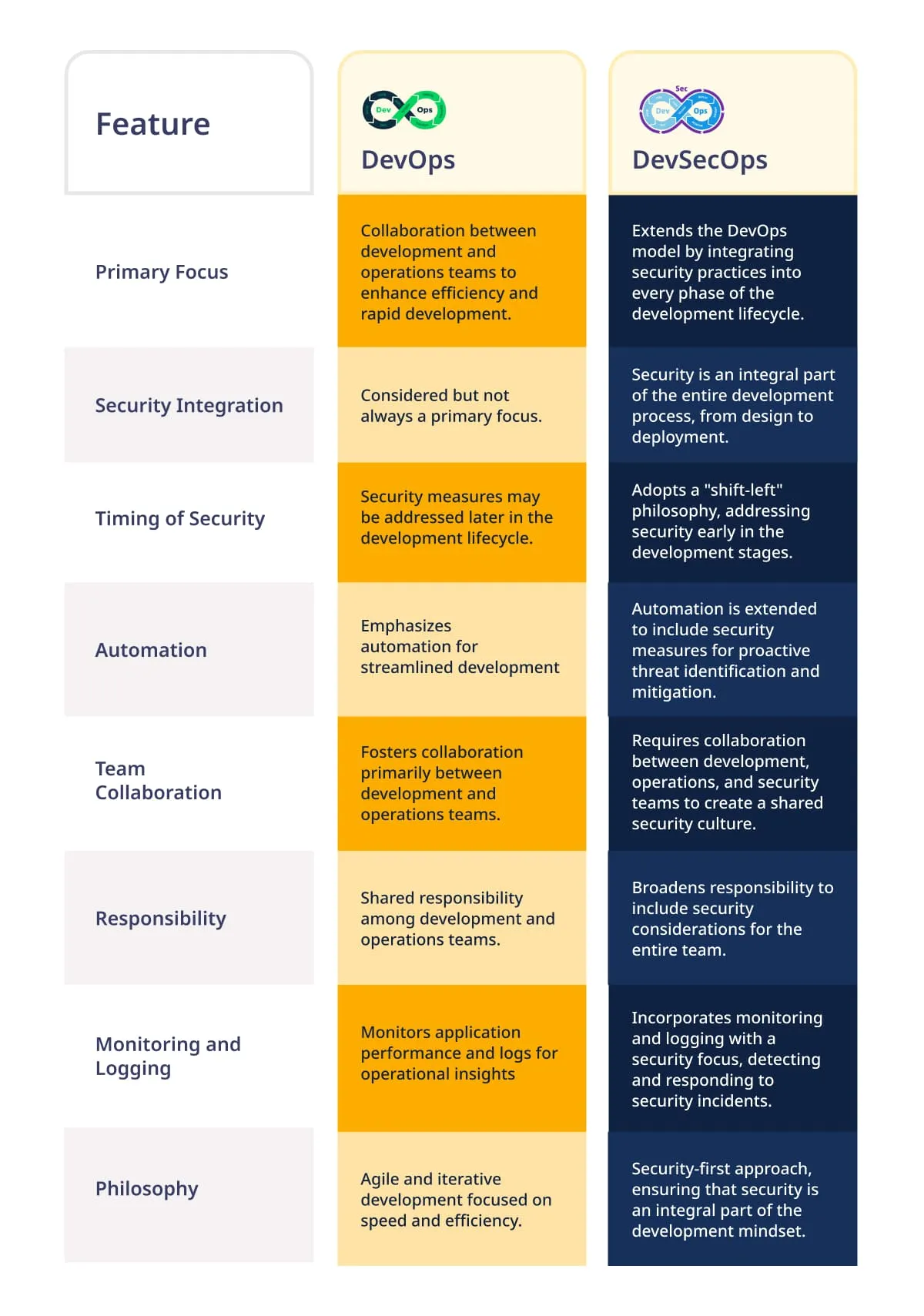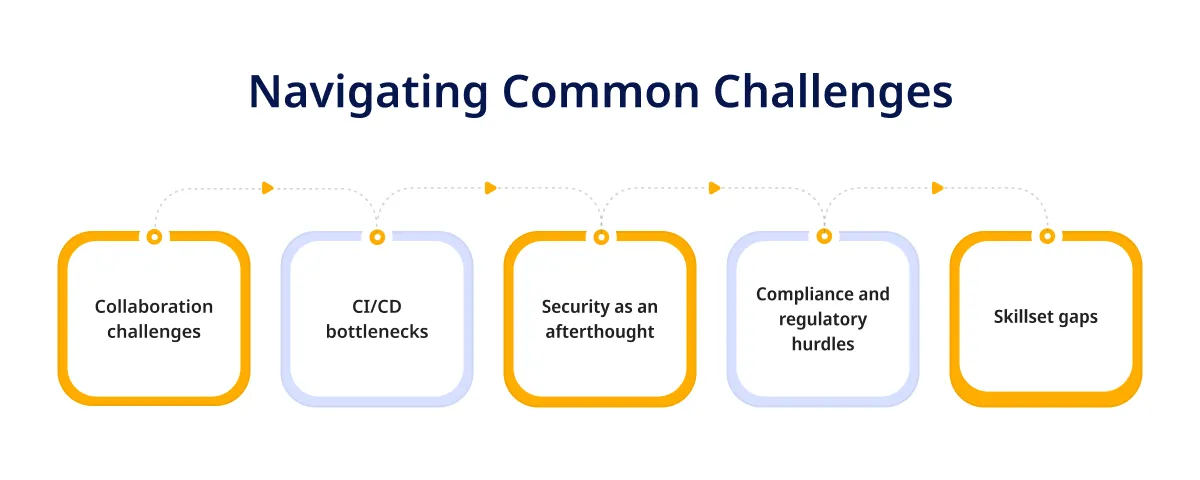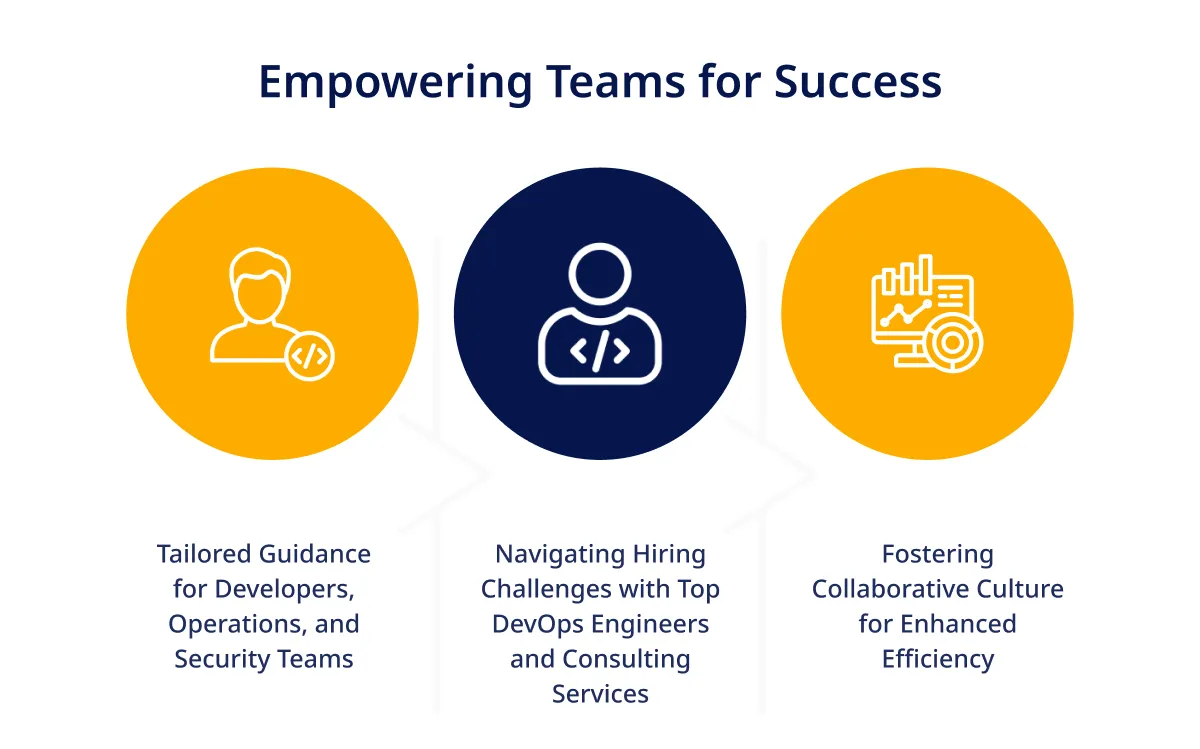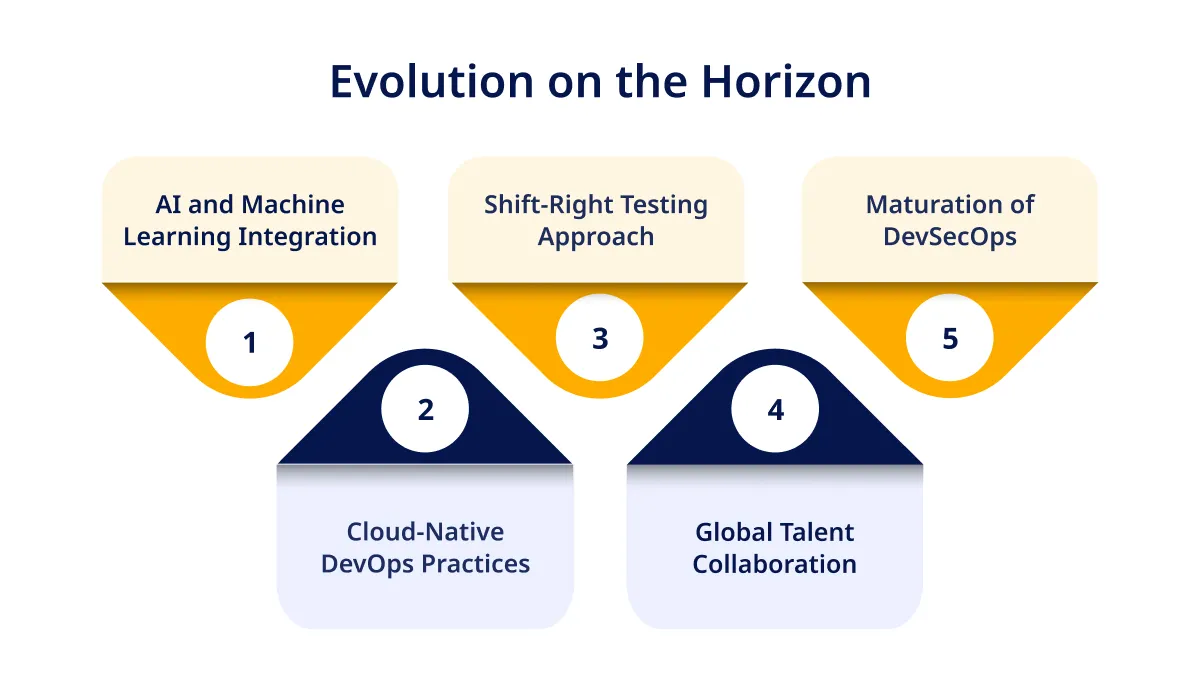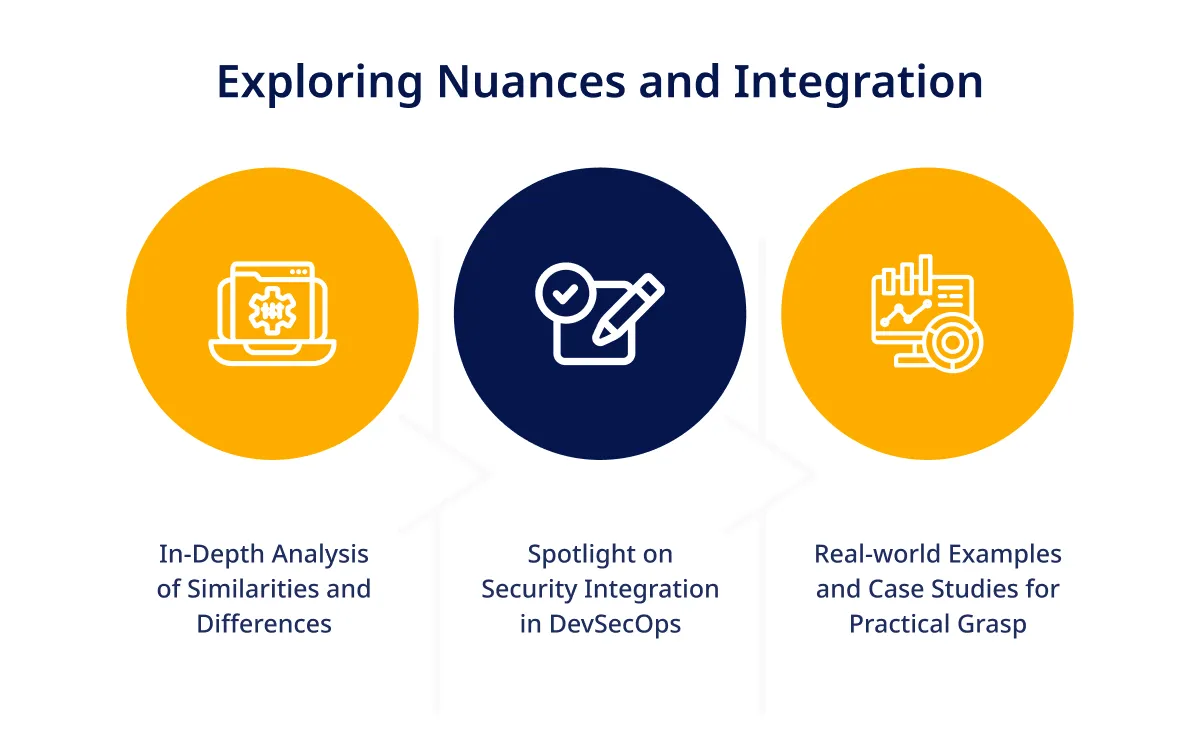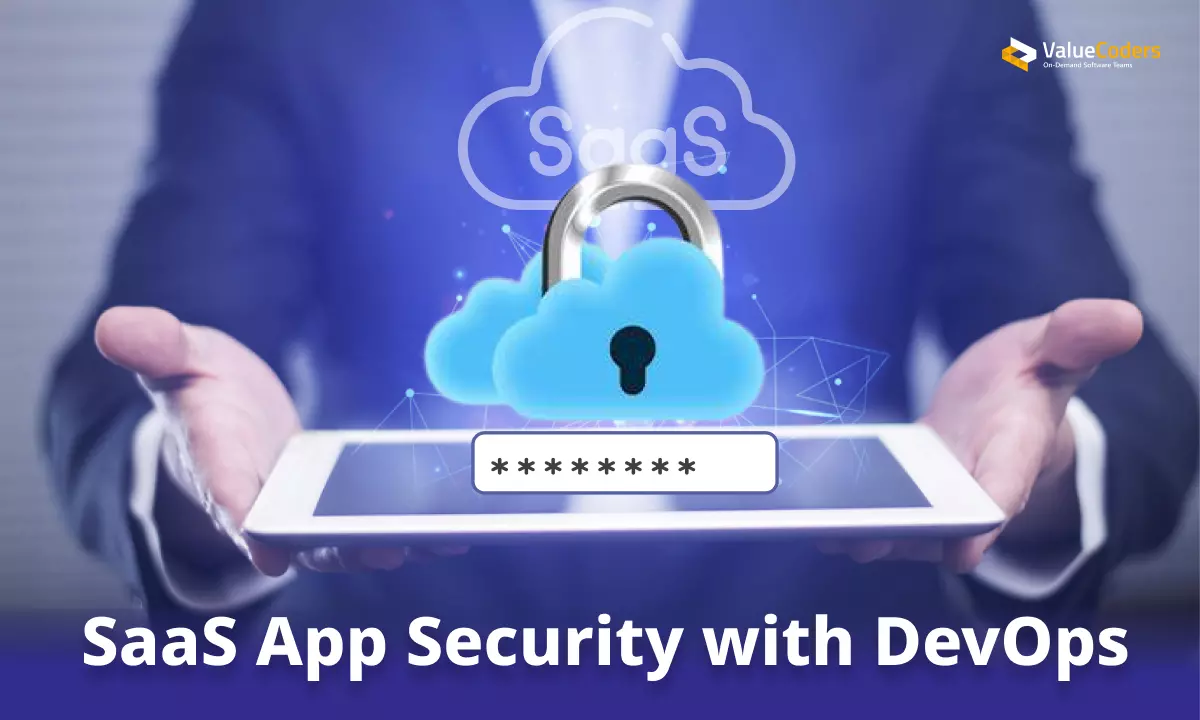With over 70% of organizations experiencing downtime in the past two years due to undetected security flaws, the need to integrate security earlier into the development lifecycle is evident.
This is where DevSecOps comes in – augmenting standard DevOps practices with proactive security at every stage. But what exactly is the distinction between DevOps and DevSecOps?
In this post, we’ll unpack the core variations between DevOps vs DevSecOps and how tightly aligning security with development results in more secure software and fewer breaches.
You’ll learn how practices like security automation, infrastructure as code, and cross-team collaboration allow DevSecOps to identify and remediate vulnerabilities early.
Follow our guide to understand how DevSecOps bakes security from design through deployment rather than leaving it as an afterthought.
The data shows this integrated approach pays dividends in reducing operational risks and security incidents. Ready to secure CI/CD?
Let’s dive in!
Defining DevOps and DevSecOps
There are two methodologies when it comes to software development: DevOps and DevSecOps.
Both play pivotal roles in shaping how teams collaborate and deliver high-quality software.
Let’s get into the detail of DevOps vs DevSecOps comparison:
What is DevOps?
DevOps, short for Development and Operations, emphasizes seamless collaboration between development and IT operations teams.
It promotes a streamlined approach to development, where code changes are continuously integrated and deployed, ensuring faster and more reliable releases.
DevOps fosters a culture of adaptability, allowing teams to respond promptly to changes in requirements.
What is DevSecOps?
To understand DevOps vs DevSecOps, an extension of DevOps, incorporates security into every phase of the development process.
It prioritizes proactive security measures to identify and address vulnerabilities early in the development lifecycle.
DevSecOps advocates for a “shift-left” approach, meaning addressing security concerns early in the development process rather than as an afterthought.
Discover how our expertise can fast-track your software development.
DevOps vs. DevSecOps: A Detailed Comparison
Let’s look into the bot methodologies from diverse perspectives to help you decide by the end of the DevOps and DevSecOps comparison.
- DevOps centers on collaboration between development and operations teams.
- DevSecOps goes beyond seamlessly integrating security into the collaboration mix.
- While both focus on collaboration, DevSecOps ensures that security is a priority at every stage of development.
What is The Difference Between DevOps and DevSecOps
- DevOps primarily concentrates on collaboration, while DevSecOps emphasizes collaboration with a laser focus on security.
- DevSecOps takes this collaboration further by intricately weaving security into every facet of the development lifecycle.
- Hire top DevOps engineers from India for your projects and get tailored DevOps solutions for startups seeking efficiency and innovation.
- While DevOps considers security, DevSecOps elevates it as a core component, ensuring it’s not an afterthought but a continuous and integrated process.
- DevSecOps adopts a proactive stance by addressing security concerns early, avoiding reactive measures often seen in traditional DevOps.
Also Read: How Agile And DevOps Fuel Rapid Product Development?
Real-world Examples and Case Studies
While DevOps facilitates collaboration, DevSecOps enriches this collaboration with robust security measures.
The choice between them depends on the specific needs of your development process.
Explore more benefits to companies offering DevOps consulting services, which are especially advantageous for startups looking to enhance efficiency and innovation.
Let’s look into real-world examples and case studies to understand the distinction between DevOps and DevSecOps.
Also Read – Why The Involvement Of DevOps In The Business Process Is Important?
In-Depth Analysis
Here is a detailed analysis of DevOps vs. DevSecOps variations to help you understand how they support different types of businesses.
- DevOps for Startups: Startups often face resource constraints; DevOps for Startups proves instrumental in streamlining development cycles, enabling rapid iterations, and quicker market entry.
- Involvement of DevOps in the Business: The business impact of DevOps extends beyond development, enhancing overall operations and customer satisfaction. Get more info on How DevOps Fuels Innovation And Propels Growth For Enterprises.
- Software Development Company: DevOps methodologies are the linchpin for software development companies, fostering efficiency and ensuring timely, high-quality deliverables.
- Software Product Development Services: Tailoring DevOps to software product development services ensures a seamless process from conception to release.
- Startup Product Development Services: For startups focusing on product development, DevOps accelerates the journey from ideation to a market-ready product.
-
DevOps in Action: Real Stories of Success
When we talk about DevOps, it’s not just a buzzword; it’s a game-changer that organizations worldwide are actively implementing.
Let’s look at some of the stories that highlight how DevOps is making a real impact:
1. Netflix: Transforming Entertainment Seamlessly
Netflix, the go-to platform for binge-watching, owes its success to a robust DevOps strategy. Through clever automation and continuous delivery, Netflix rolls out new features multiple times daily. This ensures that users get a flawless streaming experience without any hiccups.
2. Etsy: Crafting Success with DevOps
Etsy, the online shopping giant, fully embraces DevOps, significantly boosting its development speed.
By adopting a microservices architecture and automating routine tasks, Etsy slashed its deployment time from weeks to mere minutes.
This speeds up innovation and lets them respond to customer needs at lightning speed.
3. Amazon: A DevOps Pioneer
Even the e-commerce giant Amazon is a testament to DevOps’s transformative power. Amazon’s efficient and scalable operations, which are capable of handling massive traffic, directly result from DevOps practices.
This allows them to deliver products and services at a pace that sets the industry standard.
Gain insights from industry leaders and revolutionize your development processes.
-
DevSecOps: Weaving Security into Development
DevSecOps isn’t just about coding; it’s about making security an integral part of the software development journey. Here are some instances where DevSecOps took center stage:
1. Capital One: Reinforcing Financial Security
Capital One, a leader in financial services, turned to DevSecOps to bolster the security of its cloud-based infrastructure.
By embedding security measures at every development stage, Capital One significantly decreased vulnerabilities and fortified its overall security.
2. Target: From Breach to Proactive Security
After a major data breach in 2013, retail giant Target revamped its approach with DevSecOps.
By weaving security testing and automation into its development pipeline, Target now takes a proactive stance on security, preventing repeat incidents.
3. JetBlue: Securing the Skies and the Code
Even in the skies, security matters. JetBlue, a major airline, understood this and adopted DevSecOps to integrate security into its software development.
The result? A streamlined security process, enabling early identification and mitigation of potential risks.
These real-world stories showcase the genuine impact of DevOps and DevSecOps. It’s not just about efficiency, speed, or security; it’s about transforming the way organizations develop software, ensuring high quality, swift delivery, and robust security measures.
Also Read: DevOps For Startups: Best Practices And Real-Life Examples To Accelerate Growth
Challenges of DevOps and DevSecOp
Navigating the terrain of DevOps and DevSecOps introduces challenges, each requiring careful consideration for successful implementation.
- Collaboration Complexity: In DevOps, fostering collaboration between development and operations teams is key, while DevSecOps introduces the added layer of seamlessly integrating security, making collaboration more intricate.
- Security Integration: DevSecOps emphasizes a proactive security stance, making security an integral part of the entire development lifecycle, distinguishing it from the more operationally focused DevOps.
- Skillset Gaps: Both DevOps and DevSecOps demand a specialized skill set. Bridging the gap between traditional development and security practices requires continuous training and upskilling.
- Security as a Priority: DevSecOps prioritizes security throughout the development process, while DevOps, though security-conscious, may treat security as an additional consideration rather than a primary focus.
- Talent Acquisition: Finding and hiring top-tier DevOps engineers in India, or any location, can be challenging due to the high demand for these specialized skills.
- Implementation Challenges: Implementing DevOps or DevSecOps through consulting services may encounter resistance, as teams need to adapt to new processes and methodologies.
The challenges of DevOps and DevSecOps lie in navigating the nuances between collaboration and security integration.
Critical steps include bridging skillset gaps, prioritizing security, and embracing a shift-left philosophy.
Whether hiring top DevOps engineers or seeking consulting services, understanding the distinct variations between these methodologies is crucial for overcoming challenges and achieving successful implementation.
Strengthen your software's security foundation with our DevSecOps insights
Advice for Different Teams
Navigating the landscape of DevOps Vs DevSecOps requires tailored advice for distinct teams involved in the development process.
Each team plays a crucial role, and aligning their efforts can significantly enhance the project’s overall success.
For Developers
- Collaboration is Key: Encourage open communication with operations and security teams to ensure a shared understanding of goals.
- Automation Mastery: DevOps relies on automation; developers should focus on mastering tools that facilitate seamless integration and deployment.
- Security Mindset: Understand the basics of security protocols and collaborate with the security team to embed security practices in the development process.
For Operations Teams
- Continuous Learning: Stay abreast of evolving technologies and methodologies in DevOps to optimize operations and enhance efficiency.
- Collaborative Troubleshooting: Foster collaboration with developers to streamline troubleshooting processes and reduce downtime.
- Monitoring and Logging Expertise: Develop expertise in DevOps monitoring and logging tools for effective performance tracking.
For Security Teams
- Early Involvement: Advocate for early involvement in the development process to ensure security is woven into the product’s fabric.
- Continuous Security Training: Stay updated on the latest security threats and solutions to implement robust security measures.
- Collaborative Practices: Work closely with development and operations teams to create a shared culture of security awareness.
Get The Best Services For Your Project
- Expertise Matters: When hiring top DevOps engineers in India or globally, prioritize individuals with a blend of development, operations, and security skills.
- Collaborative Culture: Seek candidates who understand the importance of collaboration and can seamlessly work across teams.
- Tailored Solutions: When opting for DevOps consulting services, choose providers that offer tailored solutions aligned with your organizational needs.
- Continuous Improvement: Engage in ongoing consultations to adapt to evolving challenges and leverage new opportunities in the DevOps landscape.
Elevate your development game by integrating security seamlessly.
Future trends in DevOps and DevSecOps
The advice for different teams revolves around fostering collaboration, continuous learning, and adopting specialized skills.
Whether hiring, seeking consulting services, or collaborating across teams, embracing these principles ensures a harmonious and efficient DevOps and DevSecOps implementation.
Anticipating the future of DevOps and DevSecOps unveils a landscape shaped by technological advancements, evolving methodologies, and an increased emphasis on security.
Here’s a glimpse into the trends that will likely define the future of these practices:
Integration of AI and Machine Learning
- Automated Decision-Making: AI and machine learning will play a pivotal role in automating decision-making processes, enhancing the speed and accuracy of DevOps and DevSecOps workflows.
- Predictive Analytics: Predictive analytics powered by AI will enable teams to identify potential issues and security vulnerabilities before they escalate proactively.
Shift-Right Testing Approach
- Enhanced Post-Deployment Testing: The shift-right approach involves extensive testing post-deployment, focusing on real-time monitoring and feedback to improve software quality and security.
- User Experience Testing: Emphasis on testing in production environments to ensure a positive user experience and address issues promptly.
DevSecOps Maturation
- Security as Code: DevSecOps will mature by adopting “Security as Code,” integrating security practices directly into the development process.
- Automated Security Checks: Increased automation of security checks will become standard, minimizing manual efforts and ensuring continuous security throughout the development lifecycle.
Collaboration with DevOps for Enhanced Efficiency
- Collaborative Tools: DevOps and DevSecOps will increasingly use collaborative tools that facilitate seamless communication between development, operations, and security teams.
- Shared Responsibility: A growing understanding that security is a shared responsibility across all teams, with collaborative efforts driving overall efficiency.
Cloud-Native DevOps
- Cloud-Centric Development: The future will see a surge in cloud-native DevOps practices, leveraging cloud platforms for enhanced scalability, flexibility, and resource optimization.
- Serverless Architectures: The adoption of serverless architectures will gain prominence, allowing teams to focus more on code and less on infrastructure management.
As the future unfolds, the integration of AI, a shift-right testing approach, the maturation of DevSecOps, enhanced collaboration, and the embrace of cloud-native practices will shape the trajectory of DevOps and DevSecOps.
Organizations that harness these trends and leverage global talent will be well-positioned for success in the dynamic software development and security landscape.
Future-Proof Your Code: Embracing DevOps Trends for Tomorrow!
Final Words
As we’ve explored, DevSecOps powers more secure software delivery by integrating security into DevOps practices.
Tight alignment across developers, ops, and security produces more resilient systems. DevSecOps also optimizes response with automated remediation workflows.
The data shows organizations that leverage DevSecOps principles reduce risk, improve agility, and spend less time firefighting preventable issues.
To accelerate your DevSecOps journey, partner with leading enterprise software development services and top DevOps companies in India like ValueCoders.
Their cross-functional teams and security automation expertise establish mature CI/CD pipelines, helping instill a DevSecOps culture company-wide.
Remember to focus on metrics directly tied to business value.
The future demands “shifting left” on security. By fully embracing DevSecOps, companies can ship faster with confidence rather than fear.
Don’t wait for a breach to spur action. Make proactive security central to your development lifecycle. With DevSecOps, you can build with both speed and safety.


